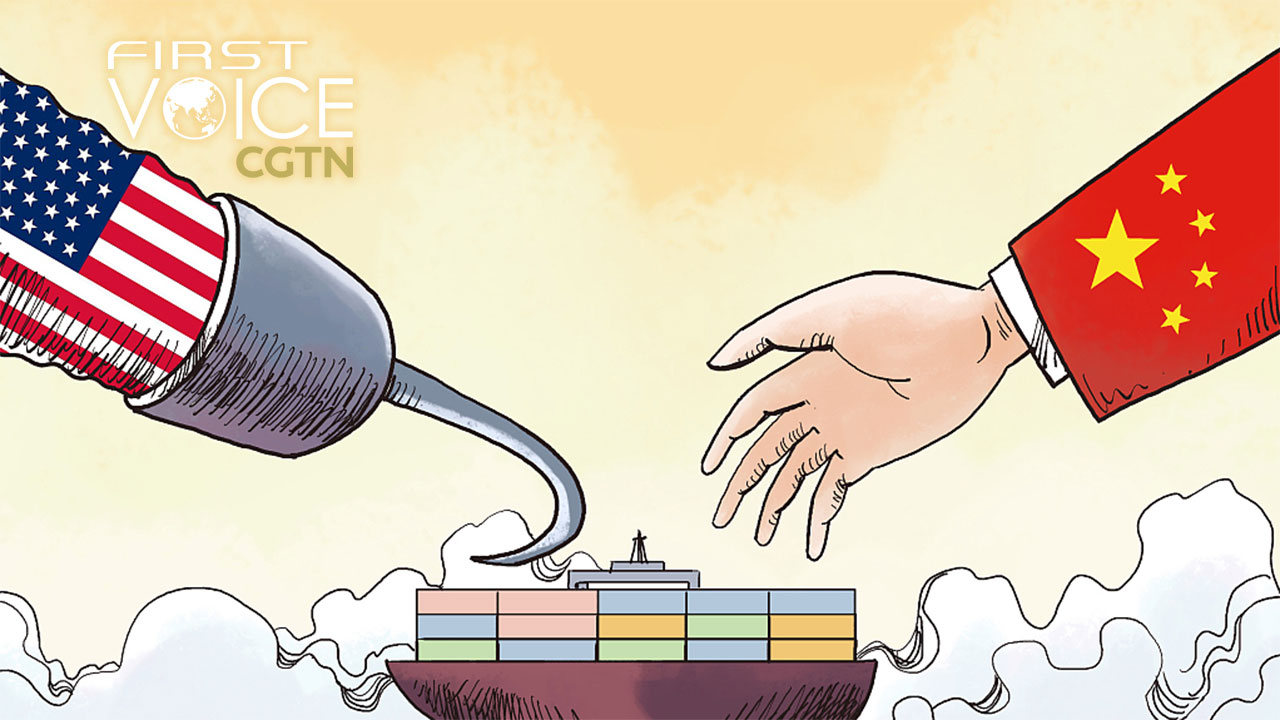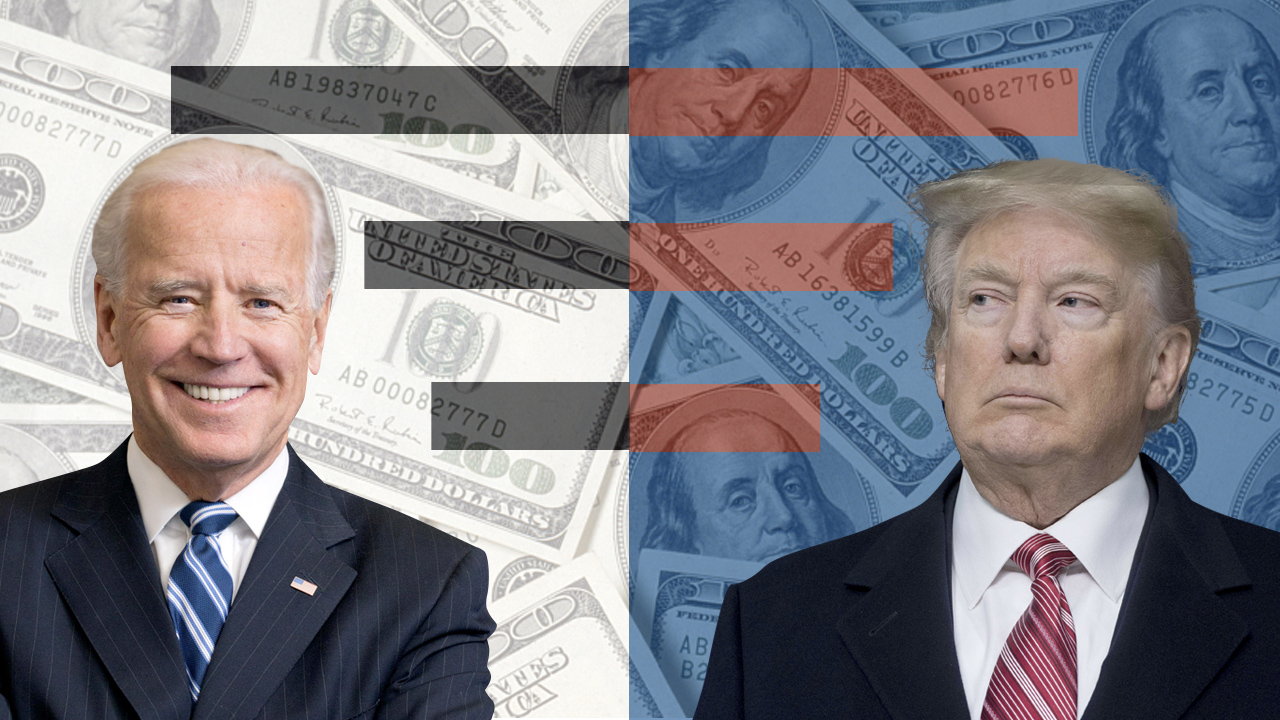
Editor's note: CGTN's First Voice provides instant commentary on breaking stories. The daily column clarifies emerging issues and better defines the news agenda, offering a Chinese perspective on the latest global events.
Pendulum swings aren't strange in China-U.S. ties, but now the world's largest two economies seem to be entering into a downward spiral. Since assuming office, Donald Trump has been known for his hardline policies on Beijing. With the clock ticking down on November's election, the President is launching anti-China offensives on all fronts, putting Beijing-Washington relations and Americans' long-term interests at jeopardy for his election bid.
After sweeping bans on China's short-video app TikTok and messaging platform WeChat, Trump signaled at Saturday's press conference that he would ramp up pressure on more Chinese-owned firms. "We're looking at other things, yes," Trump responded when asked whether other particular Chinese companies, such as Alibaba, would be targeted.
The Trump administration insists the moves on China-owned firms are for national security. Apparently, it is seeking decoupling from China. Unlike TikTok, Alibaba has meager share in the American market. But its reputation as China's tech champion is enough to make it the potential target by anti-China hawks in the White House.
Apart from the tech industry, China-U.S. trade is not spared from the risk of decoupling. The world's largest two economies have delayed a review of their hard-won phase-one trade deal. No new date has been announced so far. Amid their significant strains on human rights, bans on Chinese firms, the South China Sea, and the COVID-19 pandemic, the historic trade deal is believed to be a "long source of stability" in Beijing-Washington ties. The delay is sending China-U.S. relations into a downward spiral that could hardly reserve.
With less than four months before the presidential election, Republicans and Democrats are vying to talk and act tough on China. After all, playing the China card has always been effective in wooing voters.

Democrat Joe Biden (L) and Republican Donald Trump. /CGTN
Democrat Joe Biden (L) and Republican Donald Trump. /CGTN
This is particularly true during the pandemic as politicians are striving to distract public attention from the virus and thus distance themselves from criticisms for domestic problems. In this context, hyping decoupling from China is a convenient tool for votes. The closer the election, the louder American politicians shout about decoupling from Beijing.
But decoupling is neither realistic nor in the interests of ordinary American citizens. In the era of global integration, the supply chain requires inputs from different countries and cooperation is indispensable in realizing advantageous complementarities. China relies on the U.S. for high-tech products, while the U.S. needs China's support for manufacturing.
Take mask production. China's daily capacity for face masks reached 110 million units at the end of February, according to the National Development and Reform Commission, compared with the U.S.'s 70 million a month. China supplies nearly half of the personal protective equipment imported to the United States. The U.S.'s disadvantageous capability in manufacturing means decoupling is not an option.
A deteriorated relationship with China is not in Americans' interests. According to the U.S.-China Business Council, 97 percent of American companies reaped profits in China last year, and 46 percent of them reported higher profit margins for their China-based subsidiaries than their overall operations. In 2015, Chinese investment in 46 U.S. states created more than 140,000 jobs.
Cutting ties with China means all these benefits would be put at risk. American politicians are fully aware of the importance of maintaining sound ties with the world's second largest economy. But still, criticizing the socialist country is an act of political correctness in the United States, especially during the election season. Playing the China card can easily win votes from expanding populist groups, but it is American citizens that will pay the price.
Scriptwriter: Liu Jianxi
(If you want to contribute and have specific expertise, please contact us at opinions@cgtn.com.)